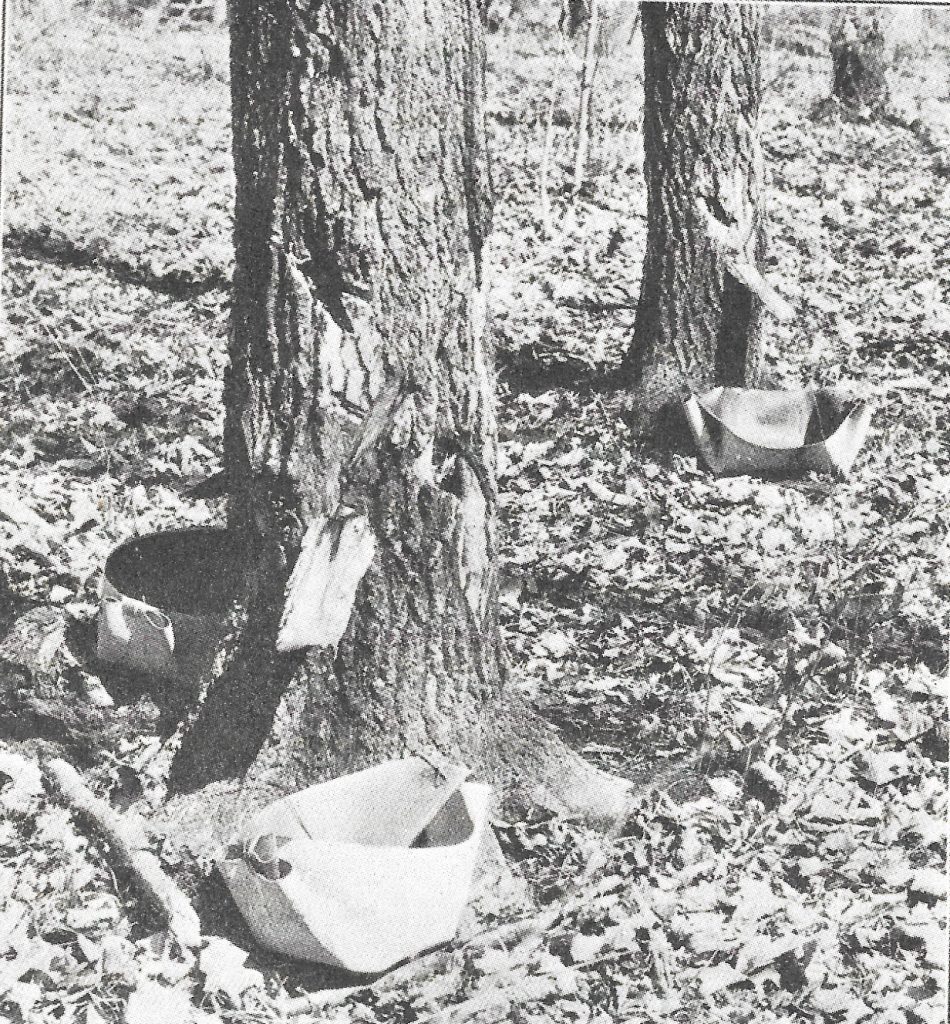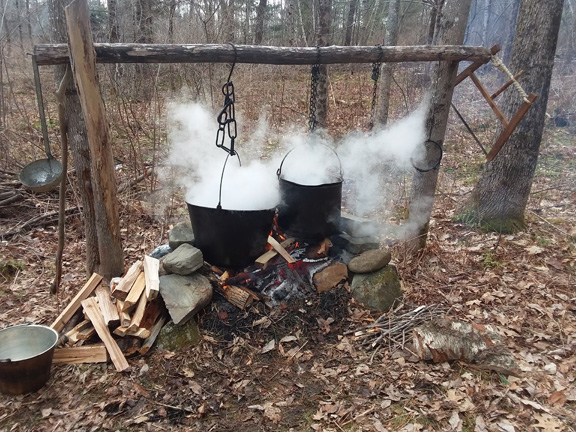Rev. Jacob Bailey comments on Maple Sugaring in Pownalborough

The early settlers observed the Native Americans collecting the sap of maple trees in the late winter and early spring. The sap was boiled down into a delicious sweetener; the settlers quickly learned the method. Reverend Jacob Bailey, was a prominent gentleman in the Pownalborough area and spent some time living with Major Goodwin and family at the Court House during the 1760s, in his journal he recorded the following:
“When the sun, by its approach towards the line, softens the rigours of winter, in the middle of the day, which mostly happens before the end of February, the sap beings to ascend, and may be extracted either by cutting a notch, or boring a hole in the trunk of the tree, and placing a vessel under a hollow tube prepared for the purpose, through which the sap drops into the vessel. The best season for gathering this juice is after a frosty night, when the succeeding day is clear, the wind to the northward and the weather warm enough to thaw a little in the shade. A southerly wind is always unfavorable, and when the tree is destitute of frost no liquor can be procured…The juice requires nothing except boiling to convert it into sugar; and it generally takes about four gallons to make a pound; and I have known a single tree about four or five feet in circumference yield eight pounds of sugar in a season. If care is used in tapping a tree it will continue for several years, and the liquor, though perhaps less in quantity, increases in sweetness.”
The above quote is taken from the History of Dresden, by Charles Allen. Mr. Allen noted: “He (Rev. Bailey) speaks of sugar from several species of birch, but says it is inferior in quality. He took especial pains to send Dr. Gardiner’s wife some maple sugar which he made while he lived in Fort Richmond. April 17, 1766, he said that Mrs. Bailey had made seven or eight pounds, and had they begun earlier, she might have made much more.

Maple sugar made a welcome addition to the provisions of a colonial family. The season in which the sugaring was done was eagerly looked forward to. It meant that the long winter was over and the spring planting season was just ahead.
Jeff Miller, LCHA Collections Committee

 Newsletter
Newsletter Join LCHA
Join LCHA Donate Now
Donate Now